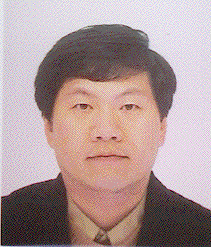 Molecular
Evolution, Animal Phylogeny
Molecular
Evolution, Animal Phylogeny
and Biogeography
| English | Japanese |
HomePage of Yoshi Kumazawa
 Molecular
Evolution, Animal Phylogeny
Molecular
Evolution, Animal Phylogeny
and Biogeography
Yoshinori Kumazawa, Ph. D
Professor of Graduate School of Natural Sciences
Nagoya City University
Work Address:
Department of Information and Biological SciencesBrief Personal History:
Graduate School of Natural Sciences
1 Yamanohata, Mizuho-cho, Mizuho-ku, Nagoya 467-8501, JAPAN
<TEL>(Japan 81)-52-872-5844
<FAX>(Japan 81)-52-872-5844
<e-mail>kumansc.nagoya-cu.ac.jp
1980-84 B.S. Univ. of Tokyo Industrial ChemistryResearch Subjects:
1984-86 M.S. Univ. of Tokyo tRNA biochemistry and translation
1986-89 Ph.D. Univ. of Tokyo "Studies on mitochondrial protein-synthesizing systems"
1990-90 Postdoc. Tokyo Inst. Technol. Structure-function relationships on tRNAs
1990-93 Postdoc. UC Berkeley Molecular evolution of mitochondrial tRNA genes
1993-00 R.A. Prof. Nagoya Univ. Vertebrate phylogeny and mitochondrial genomics
2000-08 A. Prof. Nagoya Univ. Vertebrate phylogeny and mitochondrial genomics
2008- Prof. Nagoya City University Molecular evolution, animal phylogeny and biogeography
Our research aims to decipher evolutionary information retained in genomic DNA sequences in order to understand the history of biological evolution in a geological time scale. There have been a variety of organisms living in a variety of environments on earth. They all have made their unique evolutionary history tightly linked to changes in local environments. Such history relates to broad aspects of the phylogeny, biogeography, bio-geo interaction, and evolutionary correlation between molecules and phenotypes.Recent Papers:
We are especially interested in reconstructing the evolutionary history of vertebrates such as reptiles and fishes. We primarily use molecular phylogenetic approaches to establish reliable phylogenetic frameworks with which to interprete independent evolutionary information based on morphological characters and/or fossils. Molecular phylogeny has revolutionarized evolutionary biologists and it will continue to enrich our evolutionary understandings.
Mitochondrial genomes are a very useful information source for this purpose due to a number of reasons including virtually no recombination and gene duplication. We have been characterizing molecular evolution of mitochondrial genomes and genes of various vertebrates. However, it is also within our scope to decipher evolutionary information from nuclear genomes.
Link to publication list
Link to newspaper articles (in Japanese)
Link to relevant sites (in Japanese)
If you are interested in my research area and would like to study with me as a postdoctoral fellow supported from Japan Society for the Promotion of Science (whether for the Japanese or for foreigners), please send your communication to my e-mail address written above. If you want to be a graduate student in my lab, I strongly recommend that you obtain fellowship support for your study in Japan in advance (see the homepage of Japan Student Services organization). You may contact me in advance for discussing possible projects in my lab.Society Membership:
Society of Evolutionary Studies, JapanOther Academic Activities:
The Molecular Biology Society of Japan
The Zoological Society of Japan
Palaeontological Society of Japan
Referees for Molecular Biology and Evolution (MBE), Journal of Molecular Evolution (JME), Gene, Molecular Phylogenetics and Evolution (MPE), Proceedings of the National Academy of Sciences, USA (PNAS), Genes and Genetic Systems (GGS), etc. Editorial Advisery Board for Open Evolution Journal (2007-)Updated on April 15, 2008